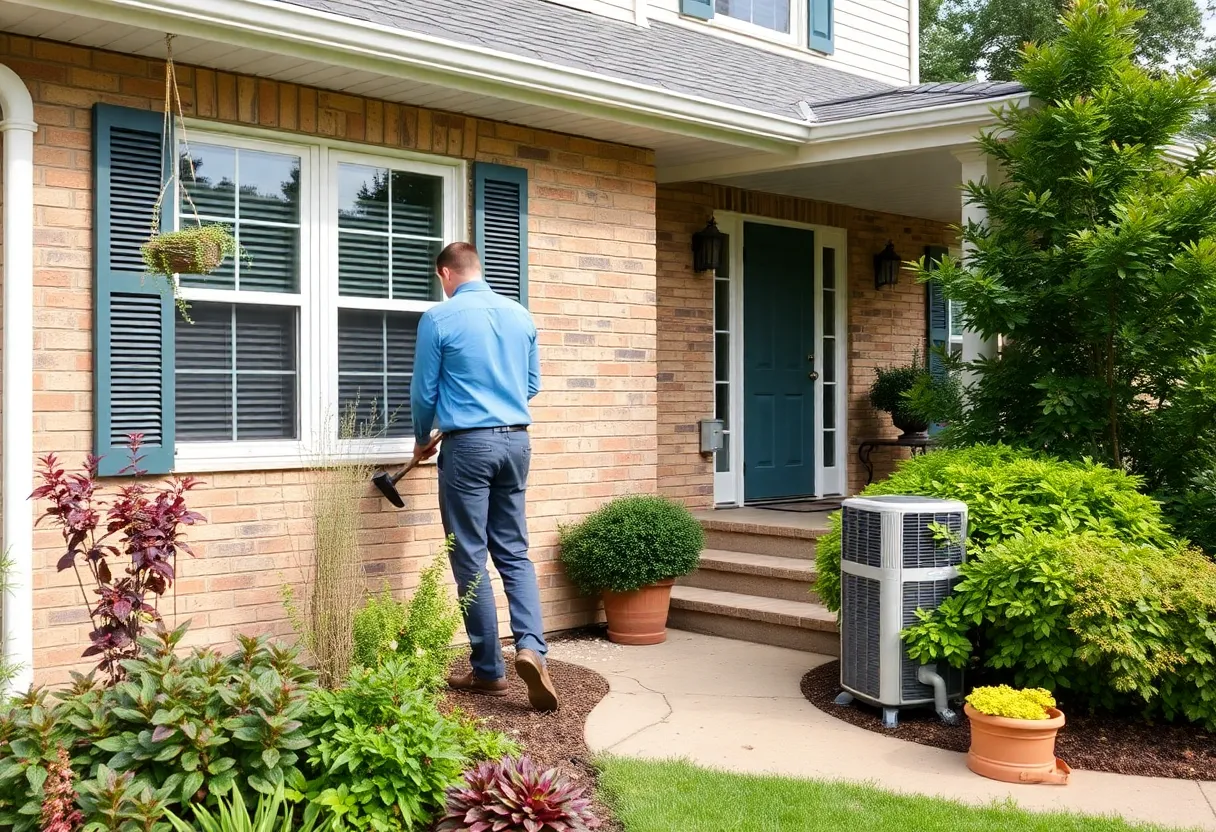How to Choose the Right Home Maintenance Plan: Tips for Every Homeowner
Managing a home requires consistent upkeep. Choosing an appropriate home maintenance plan can protect your investment and ensure safety, comfort, and efficiency. Careful selection of a maintenance plan not only prevents costly repairs but also prolongs the lifespan of home components. This guide provides essential insights to help homeowners identify the most suitable maintenance strategies tailored to their properties.
Understanding the Importance of a Home Maintenance Plan
A structured home maintenance plan addresses routine tasks proactively. It minimizes unexpected breakdowns and reduces long-term expenses. Implementing a comprehensive plan fosters peace of mind and preserves property value.
Key benefits include:
- Preventing costly repairs: Regular upkeep catches issues early.
- Enhancing safety: Maintenance of electrical, plumbing, and structural systems mitigates hazards.
- Boosting efficiency: Properly maintained systems consume less energy and resources.
- Extending lifespan: Regular care prolongs the service life of appliances and structural components.
Assessing Your Home’s Unique Needs
Evaluate the Age and Condition of Your Home
Older homes generally require more frequent and intensive maintenance. Understanding the age of major systems—HVAC, roof, plumbing—helps determine maintenance priorities. Newer homes may need less immediate attention but still benefit from periodic inspections.
Identify Key Systems and Components
Focus on critical areas such as:
- HVAC systems
- Roof and gutters
- Plumbing and sewer lines
- Electrical wiring and fixtures
- Foundation and structural elements
Recognizing these components’ conditions informs maintenance frequency and scope.
Evaluate Local Climate and Environment
Environmental factors influence maintenance needs. For instance, homes in humid regions face more mold and corrosion, necessitating regular inspections and treatments. Conversely, areas with harsh winters may require extra attention to insulation, heating systems, and snow removal.
Types of Home Maintenance Plans
DIY Maintenance Plans
Homeowners confident in their skills can handle basic tasks such as filter changes, gutter cleaning, or simple repairs. DIY maintenance can be cost-effective but requires time, knowledge, and safety precautions.
Professional Maintenance Services
Engaging licensed professionals offers expertise for complex systems. Regular inspections, tune-ups, and repairs by specialists can prevent major failures. Opting for maintenance contracts or service agreements ensures periodic checks are scheduled and performed reliably.
Hybrid Approach
The most balanced strategy combines DIY tasks with professional services. Routine tasks can be managed in-house, while periodic comprehensive inspections and repairs are outsourced.
Criteria for Selecting the Appropriate Maintenance Plan
Determine Your Budget and Cost Expectations
Balance between costs and benefits. DIY plans minimize expenses but require time and skills. Professional plans guarantee quality but involve higher costs. Prioritize critical systems for professional attention while handling minor tasks personally.
Assess the Complexity of Your Home Systems
Highly technical systems like electrical panels or HVAC units typically require licensed technicians. Less complex tasks such as weatherstripping or painting can be managed independently. Match the plan to your comfort level with home repairs.
Examine the Scope of Maintenance Coverage
Some plans cover only basic tasks; others include emergency repairs or full inspections. Carefully review what is included to ensure your home’s particular needs are met.
Review the Frequency and Schedule
Maintenance plans should specify the timeline for inspections and tasks. Regularity depends on system age, usage, and environmental conditions. Choose a plan with a flexible, well-structured schedule.
Key Components of a Well-Structured Home Maintenance Plan
Routine Tasks
These keep systems operating smoothly and include:
- Changing HVAC filters
- Testing smoke and carbon monoxide detectors
- Cleaning gutters and drainage systems
- Inspecting for water leaks
- Sealing windows and doors for insulation
Periodic Inspections
Scheduled at least annually, these include:
- Roof inspection for damage or wear
- HVAC system tune-up
- Plumbing system evaluation
- Electrical safety check
- Foundation assessment
Preventive Maintenance
Actions taken before failures occur, such as:
- Replacing aging belts or filters
- Applying protective coatings to pipes
- Inspecting and treating wood against pests and rot
Emergency and Critical Repairs
A good plan outlines procedures and contacts for urgent issues like water leaks, power outages, or structural damage.
Factors to Consider When Customizing Your Plan
Homeowners’ Technical Skills and Time Availability
Assess whether you have the skills and time for DIY tasks. For complex or safety-critical systems, professional services are advisable.
Long-Term Maintenance Goals
Decide if your aim is routine upkeep, asset preservation, or comprehensive coverage. This influences plan scope and cost.
Availability of Skilled Professionals in Your Area
Certain maintenance tasks require specialized expertise. Availability can influence your choice of provider and plan type.
Insurance and Warranty Considerations
Some service agreements can complement home insurance, reducing out-of-pocket expenses during repairs. Review warranties on appliances and major systems to align with your maintenance schedule.
Maximizing the Effectiveness of Your Maintenance Plan
Keep Detailed Records
Document all inspections, repairs, and maintenance activities. This provides reference and supports warranty claims.
Adhere to Scheduled Tasks
Consistency is key. Timely completion of maintenance prolongs equipment life and prevents small issues from escalating.
Review and Update the Plan Annually
Adapt the plan based on changing home conditions, system aging, or new needs. Engage professionals for reassessment when necessary.
Leverage Checklist and Reminders
Use checklists and digital reminders to stay organized. Regular oversight prevents oversights.
Final Recommendations for Homeowners
Choosing the right home maintenance plan involves assessing your home’s needs, personal skills, and budget. Avoid generic, one-size-fits-all approaches. Instead, tailor your maintenance strategy for optimal protection and efficiency.
Prioritize proactive measures over reactive repairs. Engage qualified professionals for complex tasks and handle routine upkeep independently. Regular evaluation and updates ensure your plan remains aligned with your home’s evolving needs.
Effective home maintenance is an investment. The right plan minimizes risks, controls costs, and preserves your property’s value.
Author: STAFF HERE VIRGINIA BEACH WRITER
The VIRGINIA BEACH STAFF WRITER represents the seasoned team at HEREVirginiaBeach.com, your trusted source for actionable local news and information in Virginia Beach, Virginia Beach City, and beyond, delivering "news you can use" with comprehensive coverage of product reviews for personal and business needs, local business directories, politics, real estate trends, neighborhood insights, and state news impacting the region—supported by years of expert reporting and strong community input, including local press releases and business updates, while offering top reporting on high-profile events like the Virginia Beach Neptune Festival, East Coast Surfing Championship, and military homecoming celebrations, alongside key organizations such as the Virginia Aquarium, Virginia Beach Convention Center, and Oceana Naval Air Station, plus leading businesses in tourism and defense like Busch Gardens and Northrop Grumman, and as part of the broader HERE network including HEREWilliamsburg.com, providing credible, in-depth insights into Virginia's vibrant landscape. HERE Virginia Beach HERE Williamsburg





